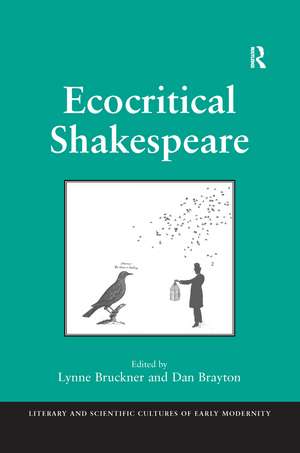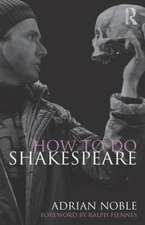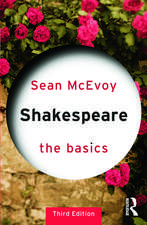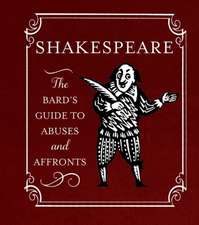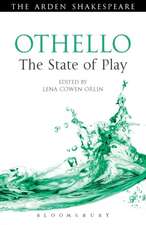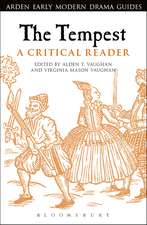Ecocritical Shakespeare
Editat de Lynne Bruckner, Dan Braytonen Limba Engleză Paperback – 11 noi 2016
| Toate formatele și edițiile | Preț | Express |
|---|---|---|
| Paperback (1) | 468.36 lei 6-8 săpt. | |
| Taylor & Francis – 11 noi 2016 | 468.36 lei 6-8 săpt. | |
| Hardback (1) | 1117.88 lei 6-8 săpt. | |
| Taylor & Francis – 29 apr 2011 | 1117.88 lei 6-8 săpt. |
Preț: 468.36 lei
Nou
Puncte Express: 703
Preț estimativ în valută:
89.65€ • 97.41$ • 75.35£
89.65€ • 97.41$ • 75.35£
Carte tipărită la comandă
Livrare economică 21 aprilie-05 mai
Preluare comenzi: 021 569.72.76
Specificații
ISBN-13: 9781138254145
ISBN-10: 1138254142
Pagini: 304
Dimensiuni: 156 x 234 mm
Greutate: 0.43 kg
Ediția:1
Editura: Taylor & Francis
Colecția Routledge
Locul publicării:Oxford, United Kingdom
ISBN-10: 1138254142
Pagini: 304
Dimensiuni: 156 x 234 mm
Greutate: 0.43 kg
Ediția:1
Editura: Taylor & Francis
Colecția Routledge
Locul publicării:Oxford, United Kingdom
Notă biografică
Lynne Bruckner is an Associate Professor of English at Chatham University, USA, and Daniel Brayton is an Assistant Professor of English and American Literatures at Middlebury College, USA
Recenzii
'Bruckner and Brayton address a subject of great current scholarly interest-Shakespearean ecocriticism-and enrich it with a series of excellent, provocative essays.' --Bruce Boehrer, Florida State University, USA and author of Animal Characters: Nonhuman Beings in Early Modern Literature
'These 13 essays are united by the theme of continuity: Shakespeare's work explores a human continuity with the natural world and ecocritical approaches to his work span a continuum between historicism and presentism... Summing Up: Recommended. Lower- and upper-division undergraduates and above.' --Choice
'The editors distinguish 'ecocritical' analyses from the generations of scholars writing on 'nature in Shakespeare', positioning these new offerings as scientifically literate, driven by a 'presentist' concern with environmental degradation, and as recognizing that previous conceptualizations of the natural world have often been compromised by anthropocentricism and politics.' --Times Literary Supplement
'... will be invaluable to readers interested in eco-analysis and the emerging interface between Shakespeare and ecocriticism. These essays plot a course for early modern literary analysis framed in terms of the multiplicity of nature’s meaning in the English Renaissance.' --British Society for Literature and Science
'[This] collection, remind us that Shakespeare is more than a poet of humanity. He understood natural and animal worlds, and his plays and poems provide keys to those worlds, as well as to our own.' --Shakespeare Quarterly
'These 13 essays are united by the theme of continuity: Shakespeare's work explores a human continuity with the natural world and ecocritical approaches to his work span a continuum between historicism and presentism... Summing Up: Recommended. Lower- and upper-division undergraduates and above.' --Choice
'The editors distinguish 'ecocritical' analyses from the generations of scholars writing on 'nature in Shakespeare', positioning these new offerings as scientifically literate, driven by a 'presentist' concern with environmental degradation, and as recognizing that previous conceptualizations of the natural world have often been compromised by anthropocentricism and politics.' --Times Literary Supplement
'... will be invaluable to readers interested in eco-analysis and the emerging interface between Shakespeare and ecocriticism. These essays plot a course for early modern literary analysis framed in terms of the multiplicity of nature’s meaning in the English Renaissance.' --British Society for Literature and Science
'[This] collection, remind us that Shakespeare is more than a poet of humanity. He understood natural and animal worlds, and his plays and poems provide keys to those worlds, as well as to our own.' --Shakespeare Quarterly
Cuprins
Introduction Warbling Invaders; I: Contexts for reading; 1: Vermin and Parasites; 2: The Ecology of Self in Midsummer Night's Dream; 3: Gaia and the Great Chain of Being; 4: Is it Shakespearean Ecocriticism if it isn't Presentist?; II: Flora, Fauna, Weather, Water; 5: “The Nobleness of Life”; 6: The Well-Hung Shrew; 7: Felling Falstaff in Windsor Park; 8: It's all about the gillyvors; 9: Tongues in the Storm; 10: Shakespeare and the Global Ocean; III: Presentism and Pedagogy; 11: An Ecocritic's Macbeth; 12: Ophelia's Plants and the Death of Violets; 13: Teaching Shakespeare in the Ecotone 1; Afterword
Descriere
The first collection devoted specifically to green Shakespeare, this volume engages with pressing environmental questions in order to provide a better understanding of where and how ecocritical readings should be situated. Ecocritical Shakespeare combines multiple critical perspectives, juxtaposing historicism and presentism as well as considering ecofeminism and pedagogy. Topics addressed include early modern representations of flora and fauna, human-animal relations, storms, the scala naturae, the marine environment, and pedagogy.
